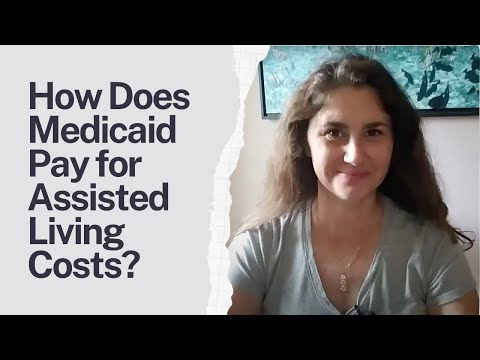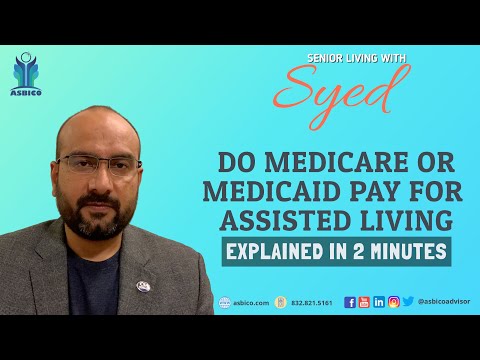When Will Medicaid Pay for Assisted Living?
Contents
- Introduction
- What is Medicaid?
- What are the eligibility requirements for Medicaid?
- How does Medicaid pay for assisted living?
- What are the benefits of Medicaid for assisted living?
- What are the drawbacks of Medicaid for assisted living?
- How can I make Medicaid pay for assisted living?
- What are some alternative ways to pay for assisted living?
- Conclusion
- Resources
Medicaid will only pay for assisted living when it is considered medically necessary. Find out more about the requirements and how to get started.
Checkout this video:
Introduction
Medicaid is a public health insurance program that provides medical coverage for low-income individuals and families. The program is jointly funded by the federal government and the states, and each state administers its own Medicaid program.
Medicaid will pay for assisted living in some circumstances, but there are several things you need to know before you can make a decision about whether or not to apply for Medicaid coverage. In this article, we’ll discuss what Medicaid is, how it works, and when it will pay for assisted living.
What is Medicaid?
Medicaid is a government-sponsored health insurance program that is jointly funded by the federal government and the states. It is available to low-income individuals and families who cannot afford to pay for health insurance Medicaid covers a wide variety of health care services, including doctor visits, hospital stays, prescription drugs, and long-term care.
What are the eligibility requirements for Medicaid?
To be eligible for Medicaid, you must meet certain financial and non-financial criteria. Financial criteria include income and assets. Non-financial criteria include citizenship, residency, and whether you are pregnant or blind.
Income requirements vary by state, but generally, you must have an income that is below a certain threshold to qualify for Medicaid. In some states, you may still be eligible for Medicaid if your income is above the threshold but you have high medical expenses.
Asset requirements also vary by state, but in general, your countable assets must be below a certain limit to qualify for Medicaid. Countable assets include cash, savings, investments, and property other than your primary residence. Some states have different asset limits for married and single applicants.
To be eligible for Medicaid, you must also be a U.S. citizen or legal permanent resident and a resident of the state in which you are applying for coverage. If you are pregnant or blind, you may also be eligible for Medicaid coverage regardless of your income or assets.
How does Medicaid pay for assisted living?
There is no single answer to the question of when Medicaid will pay for assisted living. States have different rules about how and when Medicaid will cover the cost of long-term care, and each individual’s situation is unique.
Medicaid is a needs-based program, so individuals must meet certain criteria in order to qualify for coverage. In general, Medicaid will only pay for assisted living if the individual requires a certain level of care that can only be provided in an assisted living facility
States also have different rules about how much money an individual can have in order to qualify for Medicaid coverage. In some states, individuals are allowed to keep a certain amount of money in a “Medicaid trust” in order to pay for their long-term care costs.
It is important to speak with an experienced elder law attorney in your state to learn more about when Medicaid will pay for assisted living.
What are the benefits of Medicaid for assisted living?
There are many benefits to Medicaid for assisted living. First, it can help cover the costs of care for those who are eligible. Second, it can help with the transition to a new living situation. Third, it can provide peace of mind for families and loved ones. Lastly, it can help ensure that people receive the care they need and deserve.
What are the drawbacks of Medicaid for assisted living?
There are a few potential drawbacks to using Medicaid to pay for assisted living. First, Medicaid only covers a limited number of services, so you may not be able to get all the care you need through Medicaid. Additionally, Medicaid reimbursement rates for assisted living are often lower than private pay rates, which means that assisted living facilities who accept Medicaid patients may have fewer resources to offer their residents. Finally, because Medicaid is a needs-based program, you may have to disclose your financial information in order to qualify, which some people may be uncomfortable with.
How can I make Medicaid pay for assisted living?
There are several ways to make Medicaid pay for assisted living. One way is to purchase a Medicaid-compliant annuity. This type of annuity is specifically designed to provide income to cover the cost of assisted living. Another way is to set up a Medicaid spend-down plan. This type of plan allows you to use your income and assets to cover the cost of assisted living until you reach the Medicaid eligibility limit.
What are some alternative ways to pay for assisted living?
There are a number of ways to finance assisted living, including Medicaid, private insurance, long-term care insurance, and out-of-pocket expenses. Typically, Medicaid will only pay for assisted living if the individual meets certain eligibility requirements. For example, the individual must be unable to live independently and must require skilled nursing care or help with activities of daily living. In some states, Medicaid will also pay for assisted living if the individual has dementia or Alzheimer’s disease.
Conclusion
Based on the information above, we can conclude that Medicaid will pay for assisted living in some circumstances, but not all. If you have questions about your specific situation, it’s best to consult with an experienced Medicaid planning attorney.
Resources
There are a number of resources available to help you understand when Medicaid will pay for assisted living. The Centers for Medicare & Medicaid Services (CMS) provides a helpful overview on their website, and the National Council on Aging also has a fact sheet on the topic. State-specific information is available through your state’s Medicaid office.







